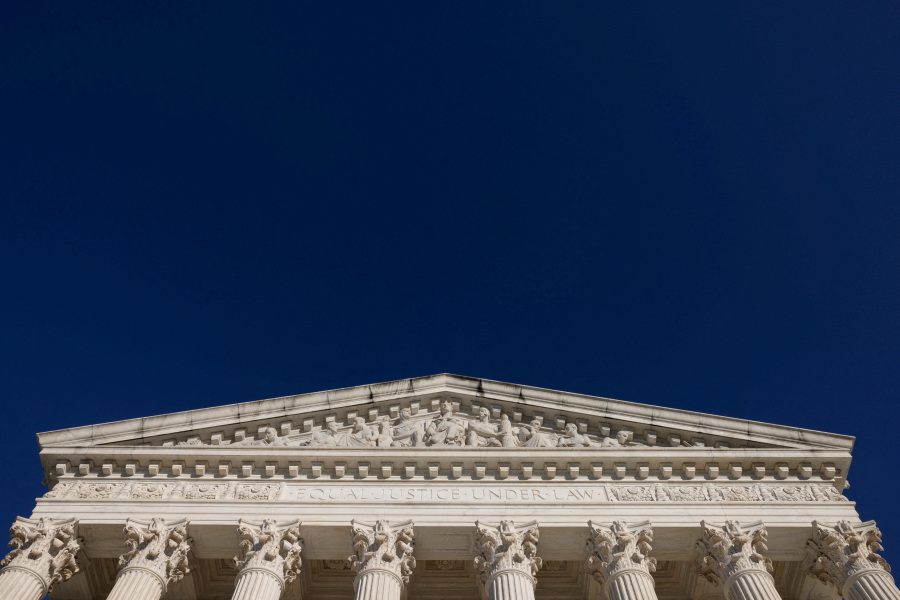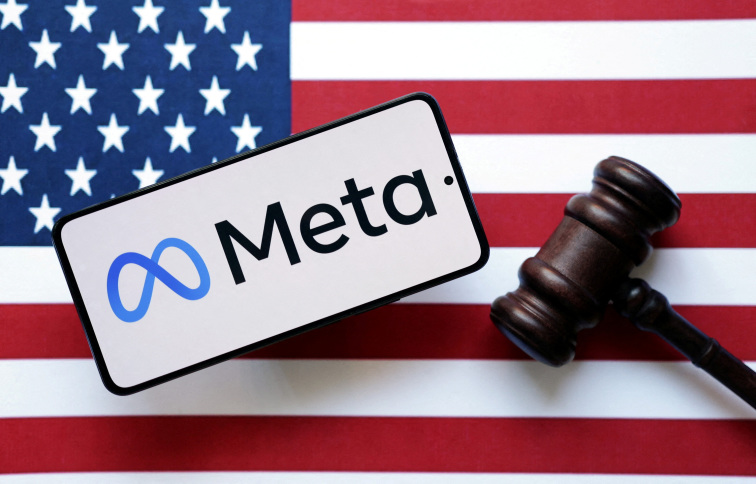WASHINGTON (Reuters) - The U.S. Supreme Court declined on Monday to hear a bid to block Delaware's prohibition on assault-style rifles and large-capacity ammunition magazines, as well as a challenge to Maryland's handgun licensing requirements, sidestepping two cases involving the divisive issue of gun rights.
The justices turned away an appeal by a group of gun enthusiasts and firearm advocacy groups of a lower court's refusal to issue a preliminary injunction against the Democratic-led Delaware's ban on "assault weapons" and magazines that can hold more than 17 rounds. Such weapons have been used in numerous mass shootings in the United States.
The justices also rejected an appeal by a gun rights group called Maryland Shall Issue and other plaintiffs of a lower court's ruling that upheld the state's licensing law as permissible under the U.S. Constitution's Second Amendment right to keep and bear arms.
While the justices declined to hear these two cases, the court did not act on two separate appeals involving challenges to Maryland's ban on assault weapons and one in Rhode Island on large capacity ammunition magazines.
The Supreme Court, with its 6-3 conservative majority, has taken an expansive view of gun rights in major rulings dating back to 2008.
Delaware's gun safety laws, enacted in 2022, ban various semi-automatic "assault" long guns including the AR-15 and AK47, but allow those who owned such weapons before the law to keep them under certain conditions. The measure prohibiting large-capacity magazines applies to those devices owned before the law took effect.
The challengers in the case are state residents who are seeking to purchase the banned guns or magazines, a firearms dealer, the Firearms Policy Coalition and Second Amendment Foundation.
They have said that the lower courts wrongly rejected their argument that a "deprivation of Second Amendment rights necessarily constitutes an irreparable injury."
A federal judge in 2023 denied a request by the plaintiffs for an injunction. The Philadelphia-based 3rd U.S. Circuit Court of Appeals upheld that decision in 2024.
That 3rd Circuit questioned the plaintiffs' contention that an injunction is essentially required in the case. "Preliminary injunctions are not automatic," the 3rd Circuit ruled.
"Rather, tradition and precedent have long reserved them for extraordinary situations. We see nothing extraordinary here," the 3rd Circuit added.
Maryland's 2013 law requires most residents to obtain a qualification license before purchasing a handgun, requiring applicants to be fingerprinted, attend training and submit to background checks.
The challengers said the regime is too onerous and the requirement "can take a month or longer" to fulfill, deterring individuals from exercising their Second Amendment rights. Maryland said that the law's fingerprinting and safety course requirements "have significant public safety benefits."
The Richmond, Virginia-based 4th U.S. Circuit Court of Appeals ruled in favor of the state.
The Supreme Court in October heard arguments in another case over the legality of a 2022 federal regulation devised by the Biden administration to crack down on "ghost guns," largely untraceable firearms whose use has proliferated in crimes. A ruling is expected by the end of June.
The justices on March 4 are due to hear arguments in another gun case - bid by U.S. gun maker Smith & Wesson and firearms wholesaler Interstate Arms to throw out Mexico's lawsuit accusing them of aiding the illegal trafficking of firearms to Mexican drug cartels.
The Supreme Court last year declared unlawful a federal ban on "bump stock" devices that enable semiautomatic weapons to fire rapidly like machine guns. The justices also struck down gun restrictions in major cases in 2008, 2010 and in 2022.
(Reporting by Andrew Chung in New York; Editing by Will Dunham)











News magazine bootstrap themes!
I like this themes, fast loading and look profesional
Thank you Carlos!
You're welcome!
Please support me with give positive rating!
Yes Sure!